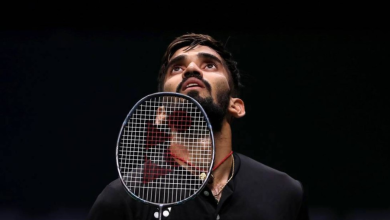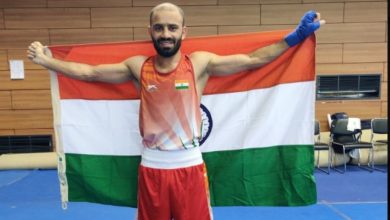Vinesh, Sakshi and Sangeeta: How India needs to get used to cocky, confident sportspersons

Wherever in the world, when a sporting star raises his voice against the system, the words and actions of the late Mohammad Ali are recalled. The other day when an anxious nation prayed that the protesting wrestlers don’t drop their Olympics and World Championship medals into the fiercely flowing Ganga at the Haridwar ghat, there was talk about how Ali had been there and even done it. This aside, there is a telling statement the sporting world’s original rebel that connects him to the ongoing wrestler’s uprising in India.
First the context. Within days of him returning from the 1960 Olympics, Ali was disillusioned. His home-coming wasn’t what he had in mind. Ali had thought that the Olympic gold would dramatically alter his life, change his social status. But that was not to be. He was still the target of rac slurs, he wasn’t allowed at ‘only-white’ places.
The golden glow of his Olympic medal couldn’t dract the world around him from the colour of his skin. For America of the 60s, Ali was still a black man who had to be indulged only when he wore a medal around his neck. A perfect prop in pictures the politicians love sharing with the media to show their sensitive side, the token black on the White House’s inclusive guest l – that’s all Ali was to the system.
America read the young Ali all wrong. He was no pushover, he wanted respect, he also aspired for equality. Ali wasn’t submissive or the kind who could be co opted. He was sure who he was and he wanted the world to acknowledge it. So who was Ali? “I am the part you won’t recognize. But get used to me. Black, confident, cocky; my name, not yours; my religion, not yours; my goals, my own; get used to me,” he said once. America took its own sweet time to get used to him. Many still haven’t warmed up but Ali did pave the way for a black man to enter the White House as a host, and not as a guest for a photo op.
Wrestlers Sangeeta Phogat, Bajrang Punia, Sakshi Malik and Vinesh Phogat during wrestlers protest march towards new Parliament building, in New Delhi, Sunday, May 28, 2023. (Express Photo Amit Mehra)
Vinesh Phogat, Sakshi Malik and Sangeeta Phogat don’t have his articulation but they have a bit of Ali in them. They are confident, cocky, and couldn’t be managed. They withstood the pressure and showed the gumption to fight the authorities in the streets and also in the courtrooms.
In this long fight between the women wrestlers and Braj Bhushan Sharan Singh, there is a lesson for the Sports Minry and sports federations. They better get used to the brand of athletes who will fight for their rights and make noise if they are exploited. They will show grit even outside the sporting arena.
Vinesh & Co have challenged the dictatorial ways of those who have been ruling sports for years and have even called them out. The times are changing, the increased participation of women in sports has changed the power dynamics. Those empowered are ready to question authorities and even take up cudgels for the shy and weak. Like it used to be in the past, not everyone would dance to the tune of the high and mighty or get used and push their political agenda.
Some time back, we at The Indian Express undertook an exhaustive exercise to analyse the social media activity of India’s top sports persons. The idea was to understand the conversations they were having with their followers. However, what stood out from the social media activity of the stars was their growing proximity with the political class, and an overwhelming folded-hands endorsement of their policies and speeches. While the cricketers were subtle in their sycophancy, the unabashed obeisance of the Olympians — totally dependent on the sports minry for their funding and training — is almost theatrical.
Wrestler Sangeeta Phogat, Bajrang Punia, Vinesh Phogat, Sakshi Malik at Jantar Mantar. (Express Photo Abhinav Saha)
Considering the Indian sportsperson’s long hory of servility, the sight of wrestlers at Jantar Mantar would have surprised the Sports Minry officials. They failed to read the leaves and appeared spectacularly insensitive. Committees were formed, a probe panel put in place but they failed to win the confidence of the country’s elite athletes. To make it worse, the spin doctors in the Sports Minry leaked to the media the total money spent on the protesting wrestlers. Their job is to train and not protest, they would whisper to reporters.
The strategy to discredit the wrestlers gave a glimpse into the mind-set of the country’s top sports adminrators. For them the money spent on those who won medals for the country was a largesse. The hands that controlled the purse strings aren’t averse to flexing its muscles to subdue the athletes. granting money to train abroad or hire coaches, they intended to buy the silence of the athletes. Wasn’t government funding an entitlement for the country’s best? Not really.
The working of the wrestling federation, under Singh, was worse. It was anything but a modern progressive institution. Singh’s WFI was one big akhada that had refused to move with time. It lacked the professionalism or the structure of successful sporting bodies. In Singh, it had a Guru, who had a veto power in all affairs. President, secretary, trainer, referee, selector, policy maker; he was everything rolled into one. With no one daring to challenge Singh, WFI lacked fresh ideas. Mud-wrestling’s age-old “ustad and the understudy” tradition is endearing but the country needs to have a relook at wrestling’s akhada-style of management. The series of sexual harassment complaints against Singh point to a pattern. Like is the case at akhadas, the power can’t be accumulated at the top, it durbs the balance of power.
Going ahead the Sports Minry and WFI should build a professional set-up around them. And more importantly they should also get used to the confidence and cockiness of India’s Olympians and World Champions.
Send your feedback to sandydwivedi@gmail.com







